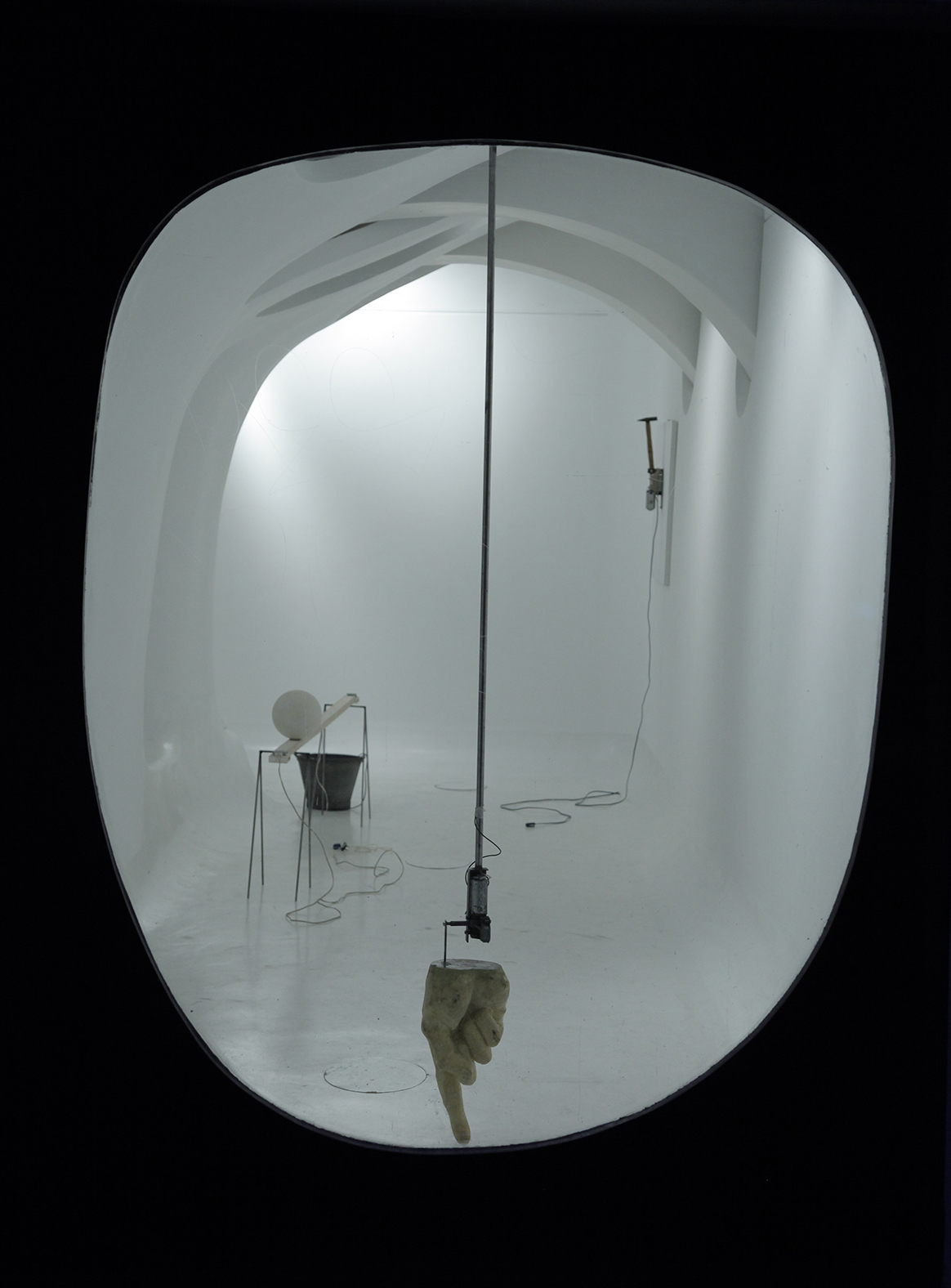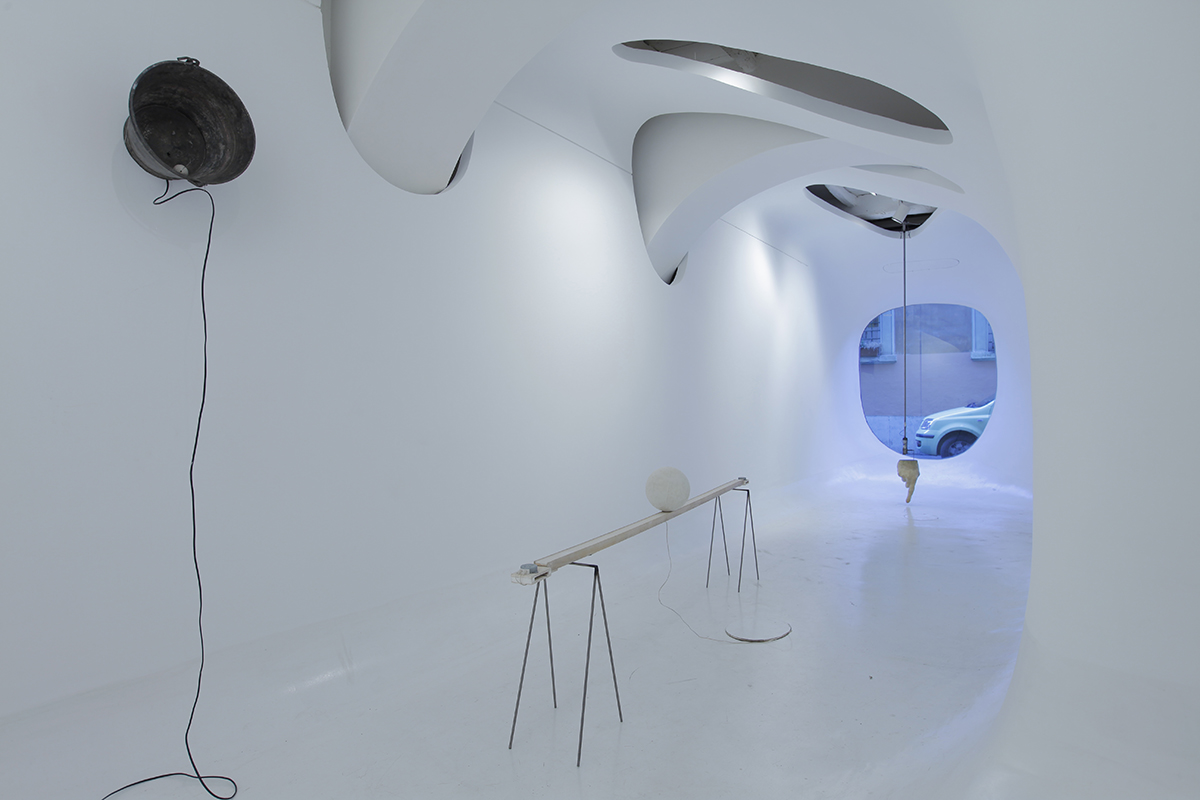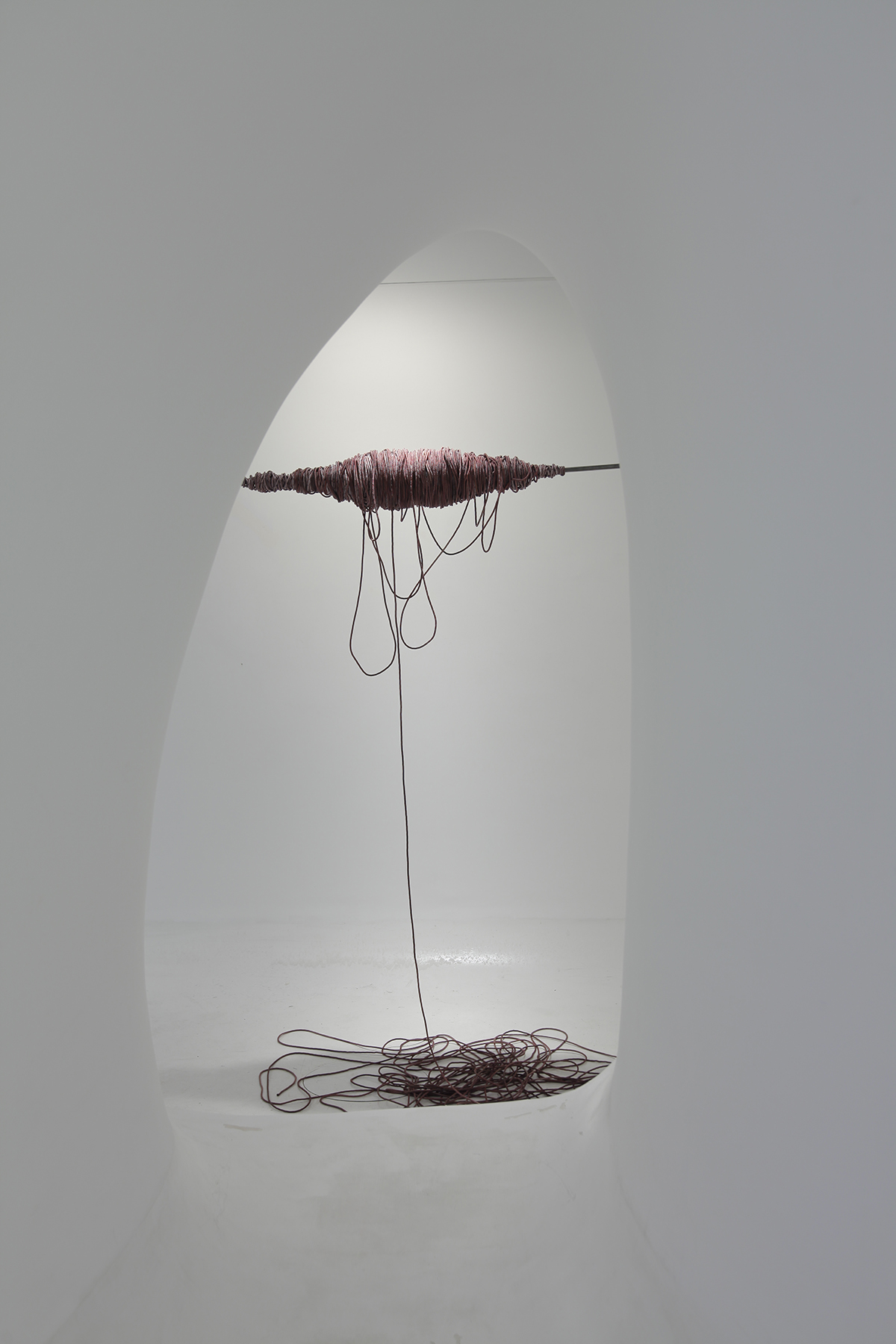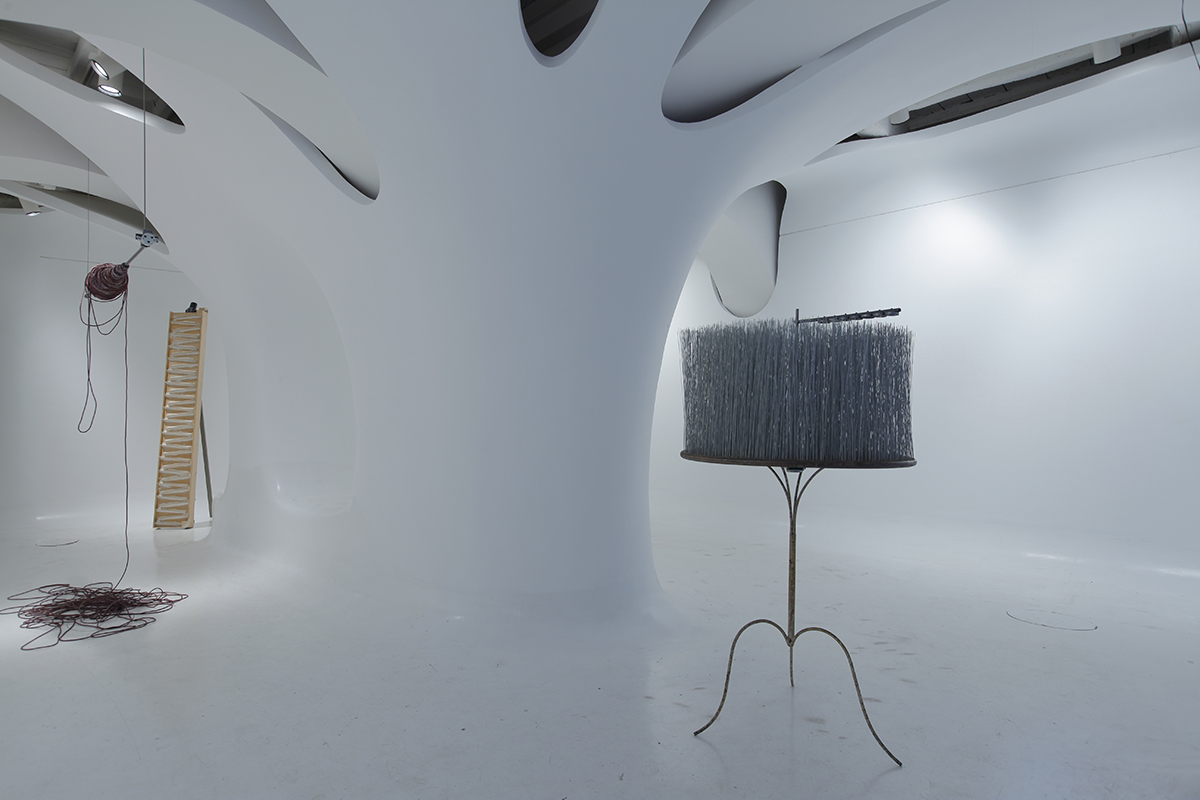The Emotional Education of Machines
Critical text for the solo show of Marco Bernardi, Time Enough, Ex Elettrofonica, Rome, October – December 2010.

Useless decaying objects found in dumpsters consumed. A synchronous movement, irregular and dull, the result of an assembly of chance or perhaps an experiment gone wrong of an ecologist scientist working with recycled materials. With this latest work, Marco Bernardi heads down the path of the reinterpretation of daily life tnat does not limit itself with the analysis of some aspects of society but documents and investigates the value of its products and consumption. The machine put together by the artist are not kinetic experiments between Tinguely and Kounellis, but the result of an investigation into the passage of time in an attempt to codify a measure of experience.
Discussing the meaning of life in relation to time is almost eschatological, an absolute yet daily quest. When the evening arrives, wondering if the day that just passed was following a committed synchronic rationality, without any lose or distraction which is a profound dilemma of modern man.

The fear of idealness and waste permeates very infinitesimal action we perform. We became the robots whom impose themselves, without the aftermath of doubt, a subdivision of the time only to perform useful movements, but we are not guided by a software program from any computer.
We are imbued with what Emil Cioran[1] called “Resignation from automaton”. We must be able to pretend efficacy by denying the natural inclination of the indeterminable to something that is not constant. The works of Marco Bernardi are in a constant search for the meaning of life that covers irregularities and instabilities, by refusing to execute the defiantly productive deeds done Lingering on errors, attempting to reverse their fate and establishing a romantic relationship with those who view them. We have the feeling of being in front of machines that want to prove to have an individual personality and a verity of behaviours that manifest into inefficient movements, stopping, jumping and suddenly interrupting the rhythm. They are robots that want to live their time and not be limited by just counting and organizing it.

They are pervaded by a feeling of rebellion, while remaining inert, carrying a strike futility. In dealing with this functional catharsis are aware of ridiculous show the presence of men who expect their movements and synchronous executions scanned. The result is a deep melancholy in the fall as aware of the lack of progress, suspended in a limbo between man and robot behaviour. Marco Bernardi forces us to enter into a relationship with his works because it has automated the mettle of empirical research through a process that aims to prove his theories. A work that seeks to define whether the passage of time has its own utility, or if his perception is related to feelings and emotions. The machines designed by the artist scan time in the most useless possible way, jamming and breaking off, into the public disappointment observing the failure of the project designed. The feeling of coming to the discovery of a failure, the inability to be the creators of an entity that is perfect and immortal, leading to the exhaustion of any confrontation with the divine power.

The robots learn to measure time to escape to infinity catatonia, a sentimental act to regain the sense of death from which modern man flees. “If I ever manage to defeat death (men) – argues Zygmunt Bauman[2] — laboriously. everything they devote themselves to carry on and give a purpose to life absurdly short, would lose meaning”.
All this was understood by Bernardi’s machines who have decided to relate to the time of making aesthetic movements, just useless, but capable of generating deep feelings and thoughts on the meaning of life.
